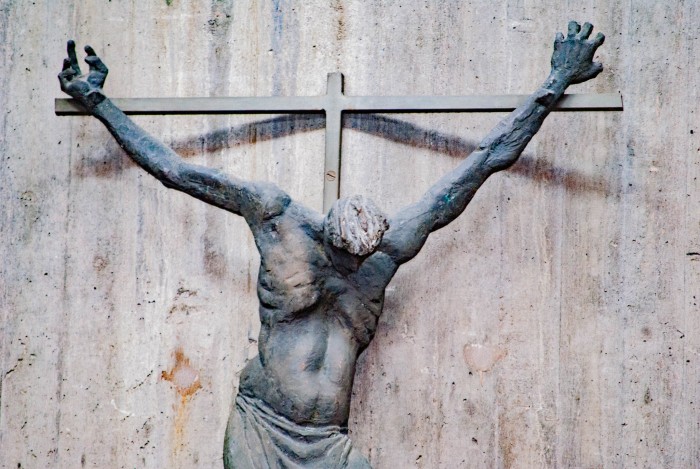The life project that Jesus proposes to his disciples is at the very least shocking, not to say disconcerting or scandalous. An impossible project as well as unpleasant. Could it be that God, in order to assert himself, puts irrevocable tests on men to prove their fidelity? If so, it would be better to sign up for another “God”.
The reading from Jeremiah (20:7-9) may give clues to undo the mess. There is a prelude in Jeremiah that one can never lose sight of: the profound experience of a call from a God who seduces him and sends him to announce conversion to people who have experienced in their history the predilections of God. But that he had deviated from what was agreed upon in the Sinai covenant. God sends him back to lead his people. And he has to cry out “Violence” and proclaim “Destruction”. A tremendously unpleasant thing for the ears of people who choose to marginalize the prophet. The mission of Jeremiah becomes “reproach” and “contempt”. He would prefer to change his word, to leave his mission, and to devote himself to other tasks. He enters an existential crisis but in the depths of his soul there is the foundational experience of his vocation and of God’s love and blessings upon him. That is why he cannot contain the Word within himself and continues his mission against all odds.
Why does Jeremiah announce “violence and oppression”? Is it a whim of God? Or is it an urgent warning to say that if you do not change your direction, there will be disaster for the people? I think that the third question is true but to announce it, the prophet must deny himself and bear the cross of humiliation and abandonment. Jeremiah lived for his people and in favor of his people despite the fact that people laughed at him and believed him to be a fool.
In the Gospel (Mt 16:2-27) we find a similar picture. Jesus began to realize that his messianism is not a path of roses. He must go up to Jerusalem. Until now he had brought his Gospel to the peripheries: Galilee, Decapolis, Samaria. But the core was in Judea, in Jerusalem. And there he had to announce the Gospel, starting with the call to conversion. It was not easy to dismantle an entire circle of power built on the hegemony of the Law, the Temple, the descendants and the Nation. It was not easy to announce a God of the living, a merciful Father, benevolent with the marginalized, present in Spirit and Truth to all men, who loves them as children and wants to see them live in fraternity. For this reason Jesus foresees a path of thorns, of abandonment, of darkness, of renunciation and finally of death. This is his mission. Jesus does not embrace this path for masochism, neither from him nor from God the Father. There is no other way because the heart of man is hardened. He does not realize that again and again he looks for the wrong exits, looks for unsupportive exits. Almost always the “one who saves” and the one who comes after is annoyed. Jesus, from the gratuitousness of the Father’s love for Him and for all men, wants to live in gratuity in delivery of his life in favor for his brothers although his life is going on. Jesus removes himself from his “I,” denies “himself,” and goes out to meet others and encounter others. That exit, that leaving “the winter quarters,” that abandoning his personal security and his desires will be the necessary preambles to put all his trust in the Lord and let God be the one to guide his life and lead it to the end, even though that end supposes the total surrender on the cross.
Peter is scandalized by Jesus’ project. He is either scared or it does not fit his expectation that the Messiah happens to be despised by the people. Peter’s reaction is normal, it is our reaction.
Jesus, we say, stop the nonsense and save us another way, easier; that everyone comes to the hand of small children and it costs us nothing, that we don’t have to give up anything; that we continue mounted in our “I” and that no one touches us. Please don’t ask us to deny ourselves and bear the cross.
And Jesus tells us: my brother, there is no other way. If you want to save your life at all costs, you will lose it needlessly. If you give it out of love, then that is when you will save it.
I repeat, there is no other way. All other paths are false and lead to perditions, your and that of others. 15 days ago, we said that God’s gifts are irrevocable. The gift of life is the greatest. It is a gift and for that to be eternally grateful. I am the fruit of God’s love who calls me into existence to give freely what I have received for free. I give my life for free in favor of others. That is the way to go from “losing” to “winning”
In the Gospel, the one who loses is the one who wins. Of course it is in a different context.
Jesus dares to pose a dilemma, “What good is it for man to win the whole world if he spoils his life? It is useless because you lose the most valuable thing.
Jesus affirms without the durability of palliative for life; beyond death. The end, death, marks a before and after, a favorable aftermath for all those who are in this life that has tried to follow in the footsteps of Jesus or have tried, like Him, to do the will of God the Father. We have to listen to Jesus again, “Do not be afraid and start sailing out to see without fear because we know that He is ahead and always precedes us.
That is why St. Paul (Rom 12: 1-2) dares to tell us: Do not adjust to this world but transform yourself by renewing your mind, so that you can discern what is the will of God, what is good, what is pleasing, and what is perfect.




